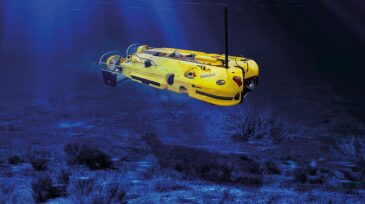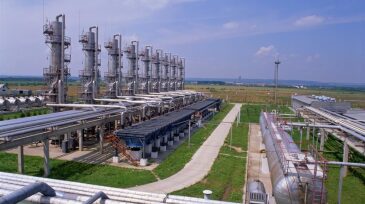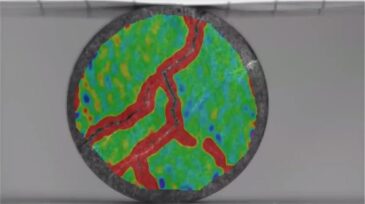R&D/innovation
Ongoing seismicity concerns and orphan well risks are pushing operators and regulators to explore alternatives for managing produced water.
The $26-million project will serve as a collaborative hub for research, engineering, and testing.
The NLR has released its 2025 US Geothermal Market Report, documenting 4 years of industry growth and providing policymakers and stakeholders with an updated overview of the US geothermal market.
-
Halliburton and Microsoft believe that by working together they can step up the pace of digital transformation across the E&P industry.
-
A joint industry-academic research initiative is expanding the knowledge of subsurface microbe populations and their interaction with drilling and production operations.
-
WiSub will lead a consortium with Statoil, Kongsberg, Saab, and other companies and universities to develop a standardized interface for AUV docking with subsea structures, as well as bi-directional power transfer to help charge sensor networks.
-
For startups in the upstream sector, knowing how to navigate through a technology's Minimum Viable Product stage is critical, but not always straight forward.
-
A new material under development is highly effective at sieving carbon dioxide from natural gas streams and is also cheap and easy to make, according to researchers.
-
When technology startups and oil and gas companies finally agree to run a pilot test, there are a few things both sides of the table should know before they move forward.
-
Oil production from the Canadian oil sands is big, growing, and its future is in doubt. The problem is the cost and time required to develop new production is not competitive now. While some big international oil companies are selling out, others are focused on changing the economics of growth.
-
Things are so tough in the Canadian oil sands that competitors are considering whether to start sharing some of what they know about producing more and doing it for less. Collaboration should speed progress for everyone, but companies with something to give are looking for something in return.
-
Technology that allows researchers to see stress forming inside rock samples may help unravel some of the mysteries associated with fracture behavior.
-
Getting a good well for a field test can make or break a new idea. A government backed research group in Saskatchewan is offering up to CAD 100,000 break on royalty payments to test ways to extend the life of conventional, heavy-oil fields.













